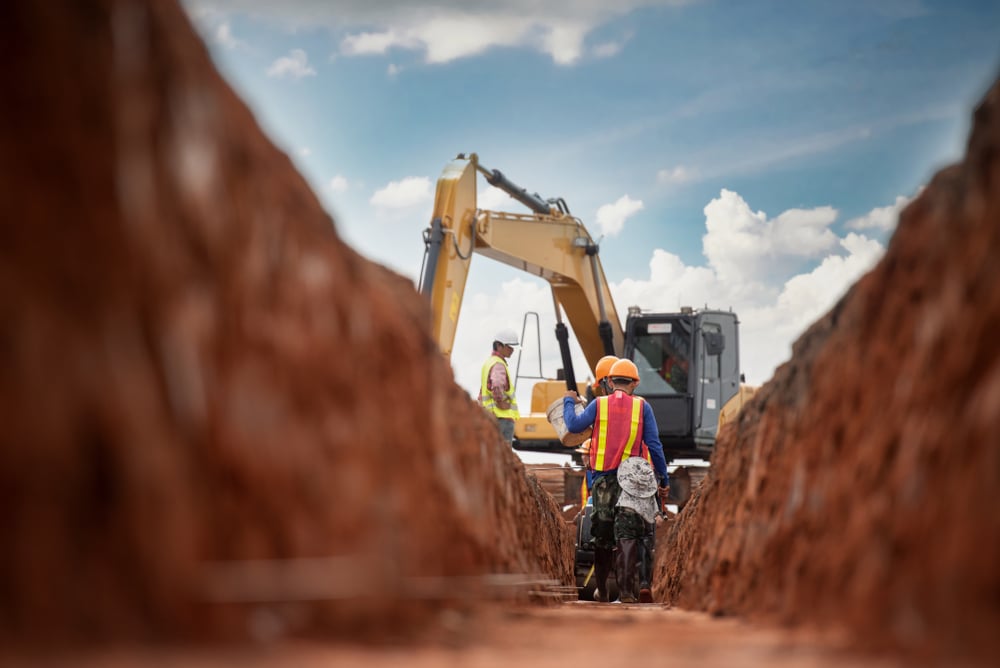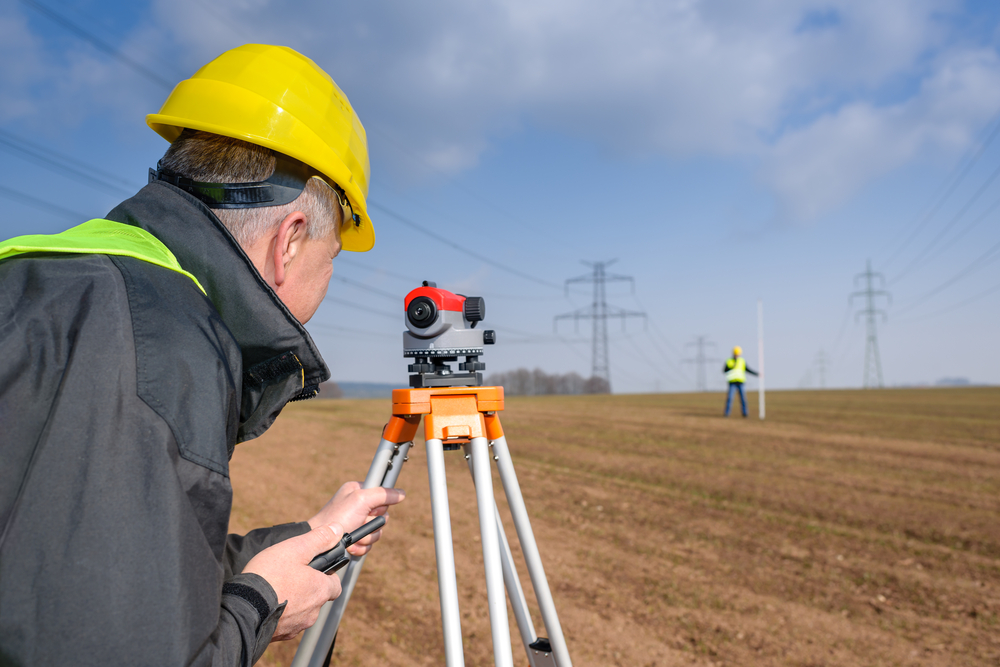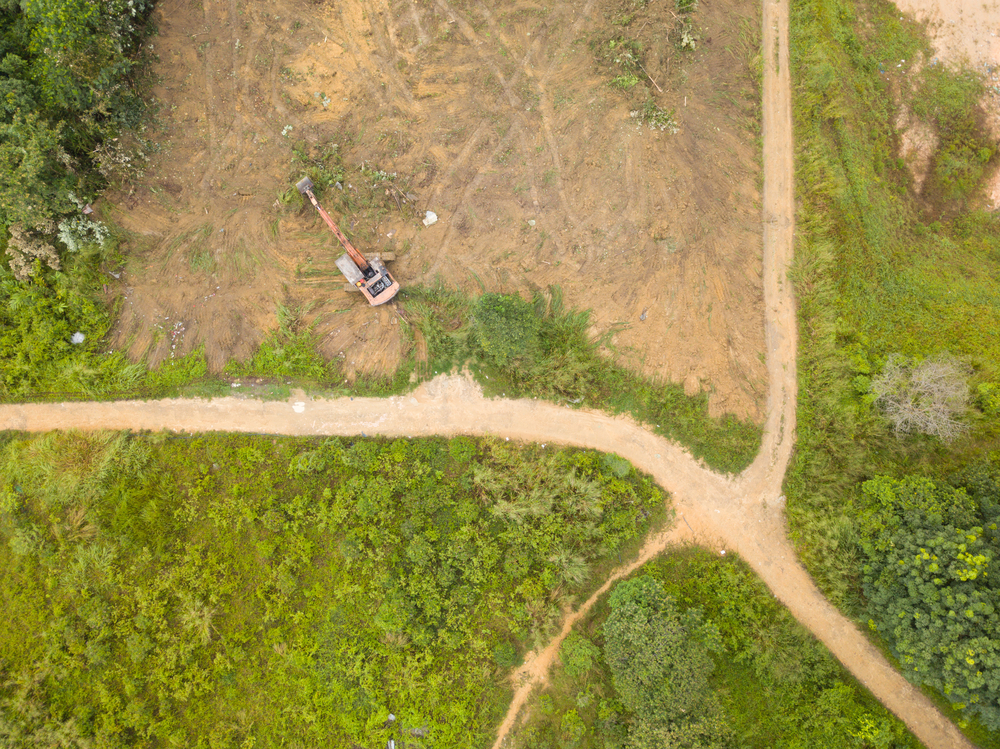.jpg)
Let’s face it, developing raw land can be a massive headache. Just the mention of zoning laws and environmental studies can set your anxiety into overdrive. The Internet doesn’t help, either. There are pages upon pages of dense reading that can leave you more confused than you were to start with.
We've pushed through the information clutter and collected eight nuggets of wisdom to help make your raw land development process as painless as possible.
Raw land is a property in its most natural state. The land has not been cultivated for any sort of crop or livestock. There are no improvements such as walking paths, buildings, or fences.
Yes, "have a plan" sounds vague and unhelpful, but it really is the first step.
You need to know exactly what you’re going to do with the land you’re looking for. This means considering the “highest and best use” for that land. It’s all a matter of perspective, however.
A conservationist might look at a piece of raw land and want to develop a wildlife sanctuary. A real estate mogul might envision a shopping center. When you’re starting out on this journey, it’s okay to let your imagination run away with you, but when you’re about to throw down some cash, keep these questions in mind:
The final estimate of what you plan to do with the site should be defensible, the logic internally consistent, and the conclusions well supported and documented by facts as well as opinions.
Proper due diligence will shape the rest of your development journey.
Looking for raw land in Northeastern North Carolina and the Outer Banks? Start here.

We’ve all seen development sites sit idle after the owner ran out of money. This is a very real possibility. If you don’t do your research, this danger intensifies.
Undeveloped land has little tax benefits but it cannot depreciate in value. This is a long term investment that might not ever turn a profit.
With that risk in mind, banks consider land development a speculative investment and will rarely offer a loan for more than 40% of its value. Outside investors, fundraising, or personal wealth are all alternative ways to fund your purchase.
Plan to make a down payment that is between 20-50% of the total price of the property.
Speaking of funds, you’re going to need to calculate the actual price of the land. It’s more than just the selling price. Tree removal, drainage, sewage, and construction are just a few of the factors that will add to your total development cost.
In addition to loan payments, you can expect to pay fees for:
The list of "hidden" costs can be long, so it’s a good idea to get the land surveyed by a professional before bidding.
FYI: North Carolina has one of the nation’s lowest corporate tax rates.

There are people whose job it is to know the minutiae of what you’re about to deal with. Relying on a listing agent to give you the full picture is dubious, at best. You want people on your team who are going to tell it to you straight and not pull any punches.
Electricians, construction workers, architects, and yes, even your loan officer, are just some of the people you’re going to get to know very well as you develop your new piece of land.
Your local Economic Development Director is a great resource to help you figure who you need on your team. Call them, talk to them, hire who they recommend. Asking for expert advice will only make things easier.
You can’t open a warehouse in the middle of residential properties. You have to know what can and can’t be built on that piece of land you’re eyeing. If you call your city officials, they can usually tell you the zoning information within minutes.
Once you know the zoning classification (e.g. – residential, mixed-use, commercial, industrial, agricultural, etc.), ask the city officials to give you some examples of what type of property would be allowed under each of these particular zoning classifications. They may even give you some ideas that you hadn’t previously thought of. Once you understand the most ideal use of the property, you can quickly determine whether it will fit your needs.
While some areas are able to be rezoned, it’s not a guarantee.
Planning to start a business in North Carolina? Check out these resources to help finance your startup.
Sounds nice doesn’t it?
But spending some quality time with your land (before or after purchase) is an important step. While you’re hanging out on your empty plot, note any weird smells or noise pollution.
Is the land close to power lines or will you have to pay for running cables? It would also help to visit the site at different times of the day, in different kinds of weather.
Some other things to consider while you’re hanging out:
This is when you really get to know the land. Check the boundaries, search for potential hazards, identify and get to know your neighbors.
A North Carolina Certified Site (like Maple Commerce Park) reduces the risks associated with development. Certification provides you with detailed information about a site and its features, including:

When it comes to land, timing is everything.
Keeping vacant land too long is a risky position.
You can do all the other steps perfectly, but if there isn’t a need for what you’re building, it won’t work.
It doesn’t make sense to open an apartment complex when another one just opened down the street. You need to do some research on your own and determine whether or not you’re fulfilling a current need.
If your plans are more long-term, figure out ways that you can generate income with your land in the meantime. Consider parking, storage, billboards or other short-term uses.
Taking advantage of Opportunity Zones might be the key to your success.
I know you want to get the ball rolling and your building erected right now, but unfortunately things don’t work like that. This is the government we’re talking about and with that comes red tape. The permits to get started sometimes take up to 180 days to be returned to you. Other parts of the process could be held up for years depending on the obstacle.
So while you’re waiting on zoning confirmation or permits to come through, take a few moments to appreciate what you’ve done so far. You’re taking an empty plot of land and creating something new. Right now, you’re nothing but unbridled potential. That’s exciting!
While you’re researching, check out these 15 commercial real estate blogs that will help keep you in the know.
These Stories on Commercial Real Estate
No Comments Yet
Let us know what you think